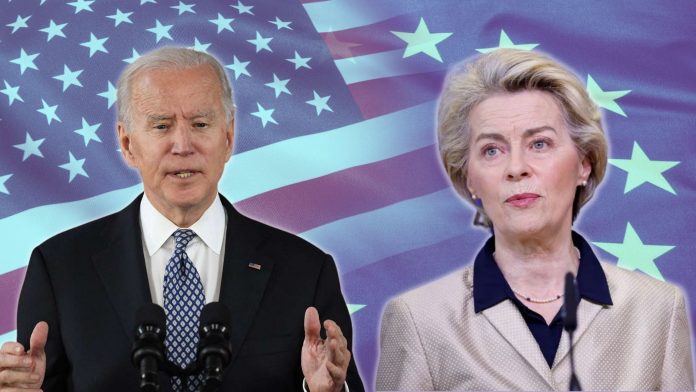After encountering months of international criticism over his administration’s Inflation Reduction Act, President Biden is set to enter negotiations with the President of the European Commission, Ursula Von Der Leyen, to discuss a potential solution.
The two leaders are expected to negotiate a free-trade deal between the U.S. and the EU, which would give foreign automakers access to EV-related tax credits in the legislation.
According to this statute, increasing amounts of battery minerals must originate in the United States or from a Free Trade Agreement (FTA) partner.
During the regulation process, the U.S. Treasury Department, which is in charge of the EV tax credits at the center of the controversy, will assess any recently reached agreements to make sure they satisfy the tax credit’s criterion for key minerals.
Since the bills passed, lawmakers in multiple countries have expressed concern that the IRA’s domestic sourcing requirements would lead companies to relocate their operations to North America.
The possible tax credits, which can total up to $3,750 per vehicle, are related to essential minerals for batteries and will go into effect after the U.S. Treasury provides guidance, which is anticipated later this month.
Whereas, the IRA’s requirement that EVs must be produced in North America in order to qualify for consumer EV tax credits has drawn heavy criticism from the EU, South Korea, Japan, and other U.S. allies.
Nonetheless, the U.S. Treasury Department’s decision to let consumer leases of EVs be eligible for up to $7,500 in commercial clean car tax credits was applauded by the EU in December.



